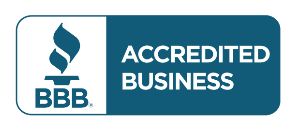Lincoln Resident's Guide to ROTH Conversions
ROTH conversions can be a powerful retirement planning strategy for Lincoln residents looking to reduce future taxes and create more flexibility in their retirement income. When you convert traditional retirement account money to a ROTH account, you pay taxes now on the converted amount, but future withdrawals become tax-free. This strategy makes sense for many people, but the timing and amount require careful planning to maximize the benefits.
What Exactly Happens During a ROTH Conversion?
A ROTH conversion involves moving money from a traditional IRA or 401(k) into a ROTH IRA. You'll pay income taxes on the amount you convert in the year you do it, just as if it were regular income. Once the money is in the ROTH account, it grows tax-free, and you won't owe any taxes when you withdraw it in retirement.
Unlike traditional retirement accounts, ROTH IRAs don't require you to take minimum distributions starting at age 73. This gives you more control over your retirement income and can help with tax planning in your later years. The money can also stay in the account longer, potentially growing more for your heirs if you don't need to use it all during your lifetime.
How Do You Know If a ROTH Conversion Makes Sense for You?
ROTH conversions often make the most sense when you expect to be in the same or higher tax bracket in retirement. If you think tax rates might increase in the future, paying taxes now at today's rates could save you money in the long run. The conversion also makes sense if you have other income sources in retirement and don't need the traditional account money right away.
Consider your current tax situation before deciding on a conversion. If you're between jobs, have lower income this year, or expect significantly higher income next year, this might be a good time for a conversion. You can also spread conversions over several years to manage the tax impact and avoid pushing yourself into a higher tax bracket.
What Are the Common Mistakes to Avoid?
One major mistake is converting too much at once and pushing yourself into a higher tax bracket. It's often better to convert smaller amounts over several years to stay in lower tax brackets. Another mistake is not having cash available to pay the taxes on the conversion - using money from the retirement account itself to pay the taxes reduces the benefit significantly.
Don't forget to consider how the additional income from a conversion might affect other aspects of your taxes, such as Medicare premiums or Social Security taxation. The conversion income could push you over income thresholds that trigger higher costs in other areas. Working with a qualified professional helps you see the full picture of how a conversion affects your overall financial situation.
How Lincoln's Retirement Planning Environment Supports ROTH Strategies
Lincoln residents often have access to employer retirement plans through major local employers like the University of Nebraska, state government, or healthcare systems. These workplace benefits can work well alongside ROTH conversion strategies. For example, you might continue contributing to a traditional 401(k) to get the employer match while doing ROTH conversions from other accounts.
The city's mix of public employees, university staff, and private sector workers creates a diverse retirement planning environment where ROTH conversions can serve different purposes. Public employees with pension benefits might use ROTH conversions to diversify their retirement income sources, while private sector workers might use them as part of a comprehensive retirement savings strategy. Local financial professionals understand these different scenarios and can help you determine how ROTH conversions fit your specific situation.
Since 1981, Secure Retirement Solutions has been helping Nebraska residents with retirement planning strategies including ROTH conversions. Our experience with retirement planning includes helping Lincoln area families evaluate when and how much to convert. If you're considering ROTH conversions as part of your retirement strategy, call us at (402) 421-2936. We can help you understand how this strategy might work in your specific situation and coordinate it with your other retirement planning goals.

